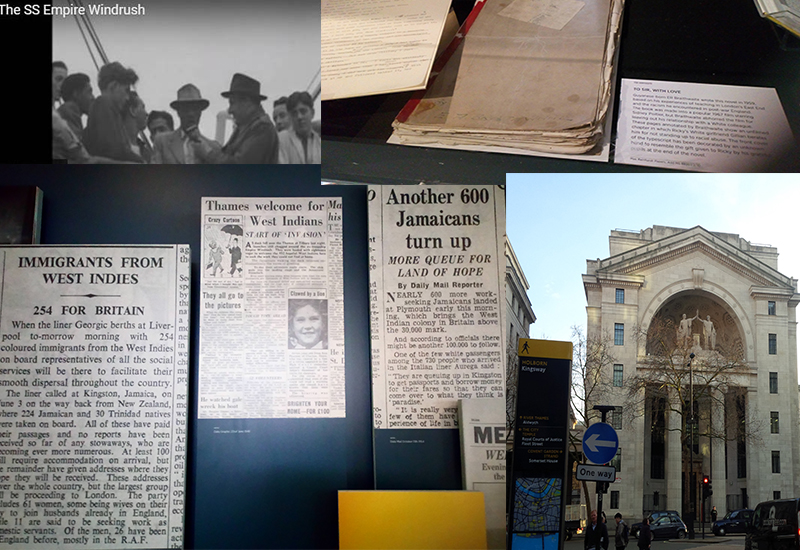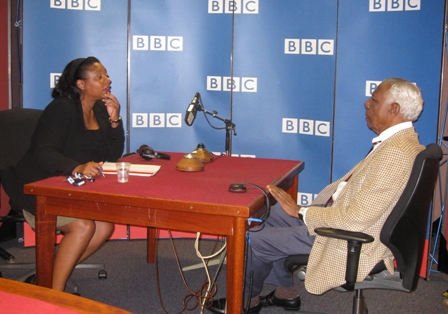Windrush and a deeper Caribbean legacy - Part I

By Debbie Ransome
When the Empire Windrush sailed into Tilbury Docks on 22 June 1948, a number of the ship’s passengers spoke to a reporter from the film newsreel company Pathé about their hopes for “doing their bit” for the motherland and for getting work in post-war Britain.
What they could not have known is that 70 years later, on the anniversary of that arrival, the word “Windrush” would not only become the catch-all phrase for people travelling from the Caribbean to settle in post-war Britain, but that it would also become the 2018 cover-all word for migration in debates about nationality and residential rights in 21st Century post-Brexit Britain.
Following the so-called 2018 “Windrush scandal”, when it came to light that some of that generation of arrivals ended up being questioned over their right to stay and even deported, the current British government has not only apologised but moved to put compensatory initiatives in place. From 2018, 22 June will now become national Windrush Day with a £500,000 annual fund for events to, as UK Gov.Co.uk described it, “celebrate the contribution of the Windrush Generation and their descendants”.
Many have said that it is not enough. Others have called for answers on the numbers deported, the hardships faced by those who remained and full accounting for the factors leading to the denial of citizenship rights to that generation who came to help rebuild Britain.
Windrush Day
In the run-up to 22 June 2018, a series of exhibitions opened across the UK, marking the contribution of the Windrush arrivals. The British Library celebrated their literary and cultural achievements, while other exhibitions of books and photos hailed the highlights of the generation that was to change the face of Britain’s working population. On 22 June, a service was held at Westminster Abbey with a heady mix of steelpan and dignitaries.
Delve behind the “Windrush” label and you find an amazing depth and breadth in the contribution of those who travelled to Britain on British passports (can you call them migrants?) to either resume war-related duties or to start careers in the UK in its post-World War Two rebuilding process.
Since the Windrush anniversary coincided with the 70th birthday of Britain’s National Health Service (NHS), there has been no shortage of celebrations of the role played by West Indians in the health sector across the decades. There has also been much coverage of the contributions they made to the country’s transport system.
However, beyond this, West Indian people made their mark in a wider range of fields, from teaching to broadcasting and writing. And, as this wartime film reminds us, don't forget the cricket!
In the world of media and broadcasting, for example, the programme “Calling the West Indies” provided a connection for West Indies troops with their loved ones back home. During the war, this programme morphed into “Caribbean Voices”, focusing on the burgeoning literary talent in the West Indies. It also provided an income and launch pad for young aspiring writers, including Vidia Naipaul, George Lamming and Sam Selvon, as well as young political, economic and legal graduates – of which more later.
The money these producers-by-day and writers-by-night earned from their BBC work allowed them to settle in London as they wrote the books that would become their seminal novels about life back home and in the UK, including The Lonely Londoners, In The Castle of my Skin and A House for Mr Biswas.
Calling the politicians
Other people earning money at the BBC’s Caribbean department (which went on to be re-launched in the 1980s as BBC’s Caribbean Service) included aspiring graduates with an interest in politics, including Eugenia Charles (later to become prime minister of Dominica), Tom Adams and Michael Manley, who later became leaders of Barbados and Jamaica.
Dame Eugenia’s former university, the London School of Economics, said of her time at the BBC that “her job was to prepare and deliver a four-minute Caribbean news programme for which she went to Parliament to hear discussion about the affairs of the Commonwealth. A useful experience for when she entered politics.”
While working for the BBC Caribbean Service in the 1990s, I met Dame Eugenia and had the experience of trying to order a car for her after her interview. She told me that she was more than happy to catch the Tube from her former place of work, prime minister or not. The Iron Lady of the Caribbean showed a touch of her younger self during that visit to Bush House.
Even future diplomats earned a BBC wage before assuming an international role, including veteran wartime RAF pilot Ulric Cross, who later worked as a judge around the Commonwealth and then as Trinidad & Tobago’s High Commissioner to the UK.

During a 2010 interview with me at Bush House, Ulric Cross told me that the BBC, during those early times, paid a guinea a minute, attracting graduates and aspiring writers. He had joined the service after being encouraged by existing staffer, a young Michael Manley.
Ulric Cross reflected in a BBC Caribbean interview that the post-war service, which had become a cultural programme seeking contributions from aspiring Caribbean writers, “really did help Caribbean writers tremendously”.
There can be no doubt about that contribution. Cross’s contemporaries at Bush House had included George Lamming, Samuel Selvon and Vidia Naipaul, giving them a berth and space to, as he called it, “cut their eye teeth” in the world of literature.
Part two of this article will appear later on this website CaribbeanIntelligence.com.
[Debbie Ransome was born in the UK of Trinidadian parents (neither of whom travelled to Britain on the Windrush). She has worked as a journalist and editor in the Caribbean and as Head of the BBC’s Caribbean Service from 1998 to 2011 and currently works for Commonwealth Round Table, the Commonwealth Journalists Association and manages the website CaribbeanIntelligence.com.]


